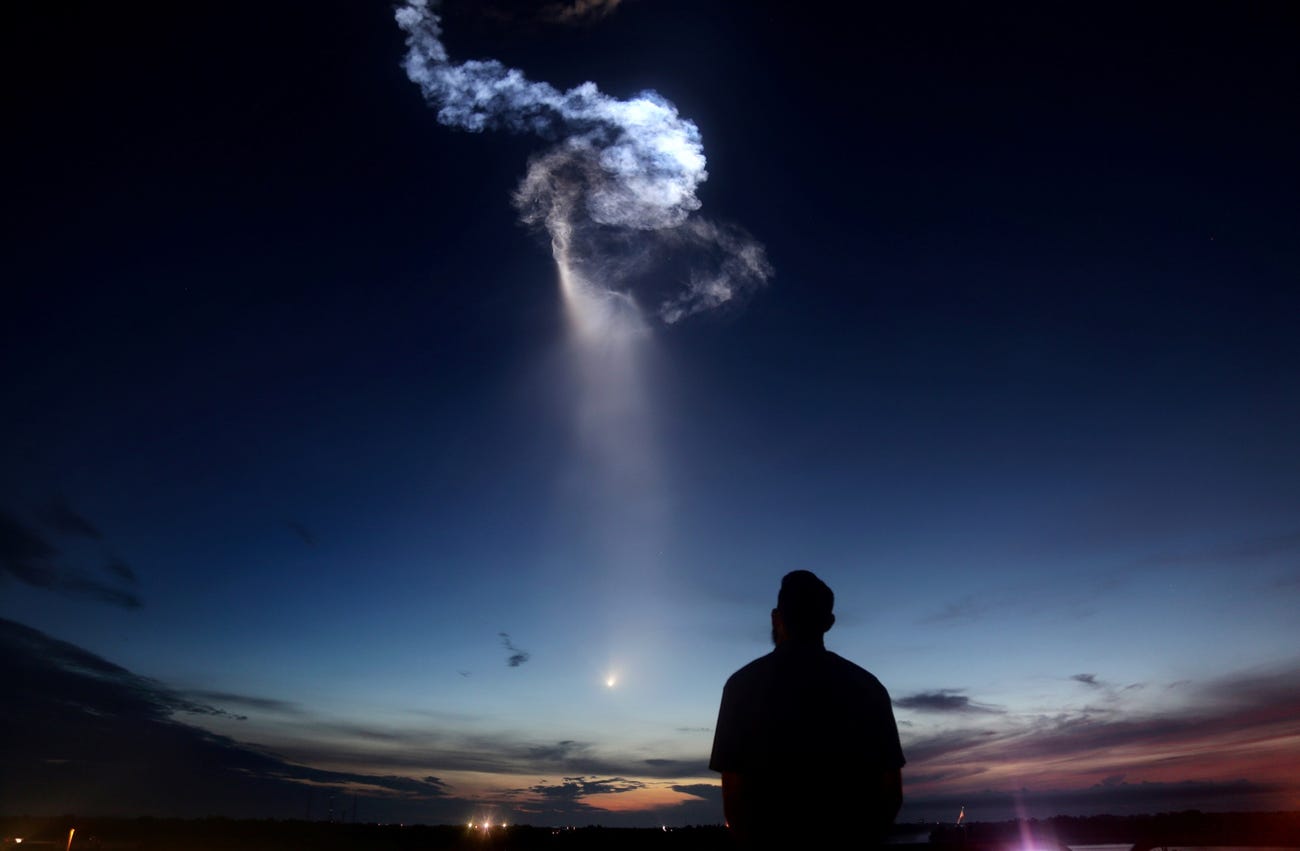Elon Musk’s SpaceX is revolutionizing the way we think about space travel. The company has used groundbreaking rocket innovations to make shipping equipment we all rely on into space. The company sends 10-20 rockets into space each year but Elon has recently revealed aspirations of making that number much higher. It also stands to reason that between Jeff Bezos’ Blue Origin, Virgin Galactic, NASA and other, emerging non-US space agencies, the number of rocket launches will only increase each year as space tourism increases.
There are so many reasons to be excited by this development. But one thing we’ll need to consider as space travel becomes more regular is how these vehicles might affect the Earth’s atmosphere at scale. Of course, right now we want to be clear: these emissions represent a tiny fraction of the human race’s yearly CO2 output. But if space trips come down to the price of a cheap flight 1000’s of rockets per month carrying scientific or governmental payloads as well as a steady stream of space tourists: the environmental impact will be much greater.
As data nerds, we love doing the math on these types of issues. So we found the numbers we’ll need to crunch to determine the potential relative impact of these rapidly increasing rocket launches on Earth’s atmosphere. Here are the raw numbers:
The Falcon 9 B burns 29,600 gallons (112,184 Kg) of highly refined kerosene (Source, Source)
3.0 Kg of CO2 goes into the atmosphere per Kg of Kerosene burned (Source)
112,184 Kg x 3 Kg / CO2 = roughly 336,552 Kg of CO2 per Falcon 9 launch. (Source)
336.5 Kg of CO2 is equivalent to the average emissions of:
395 Transatlantic Flights (One-Way, avg of ~850Kg/flight, source)
OR
73 Cars (4600 Kg/y per, source)
If 1000 rockets were to launch the total output of CO2 would be equal to:
395,000 Transatlantic Flights worth of CO2
OR
73,000 Cars worth of CO2 emitted
Again, this reporting is not meant as a nay-say on rocket launches or space travel in general. But as rocket launches become more common and space tourism accelerates in you, the reader’s lifetime as most experts predict– companies such as SpaceX will need to consider the environmental impact of their launches at scale. They’ll also want to consider using alternate fuels or upgraded technology to that end. The numbers above might seem shocking but even 1000 rockets would pale in comparison to other various forms of transportation.
Other Data Sources for this Piece:

73,000 Cars worth of CO2 emitted, so it will not make a dent vs. the over 1 billion cars out there.
Falcon 9 will soon be retired and Starship will replace it. Can you run the numbers on Starship?
Starship will use oxygen and methane both produced from our atmosphere using renewable energy.
This effectively means the starship will run on renewable energy.
The Raptor engines powering Starship use liquid methane and liquid oxygen. Methane is the main component of what is known as natural gas. While there is an emerging Renewable Natural Gas (RNG) industry, essentially converting all sorts of bio-waste (landfill, sewage, animal manure, agricultural byproducts, food waste) into biogas refined into methane, it is tiny in comparison to the amount of Natural Gas of fossil origin.
If the US were to convert all of the available bio-waste into RNG, it would represent at most 11% of the Natural Gas consumption. But more realistically, we could go up to 1.25%.
So, no, Starship will certainly not run on Renewable Energy anytime soon.
Sources:
https://en.wikipedia.org/wiki/Methane#Fuel
https://www.greenbiz.com/article/7-things-know-about-renewable-natural-gas
https://www.powermag.com/renewable-natural-gas-emerging-as-serious-decarbonized-gas-contender/
So about 4 days worth of CO2 emissions from the airline industry?
The formula for kerosene is C12H26, for methane, which Starship uses is CH4, so the carbon content of Starship’s fuel is 63.3 percent of that used by the Falcon 9. However, as I burned methane is a much more powerful greenhouse gas than CO2, any vented or leaked fuel would reduce the difference.
I meant to write “unburned methane” but Autocorrect struck when I wasn’t looking.
I’m not an expert but I would guess that the different exhaust systems would effect if the carbon gets into the atmosphere or not.
Eg the weight of the molecules that are expelled eg CO2 , CH4,C12H26 Also,where they are expelled in the atmosphere, their temperature.
All would increase or decrease the comparisons to cars.
Apologies, I meant which level in the atmosphere and whether it says there contributing to global warming.
Just typical do-as-i-say-not-as-i-do
What are the emissions of producing 1 disposable rocket?
I want to be a billionaire and for some reason have the right to phuck up the planet a risk the lives of millions of people across the globe. Sit down little people. This is my playpen not yours.